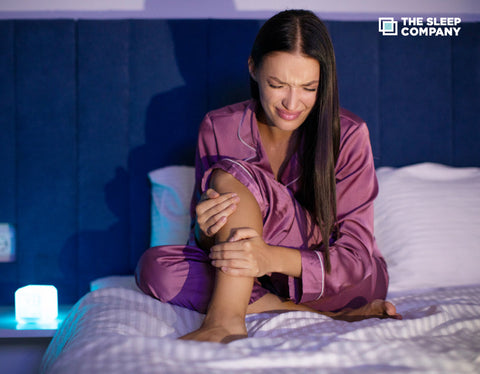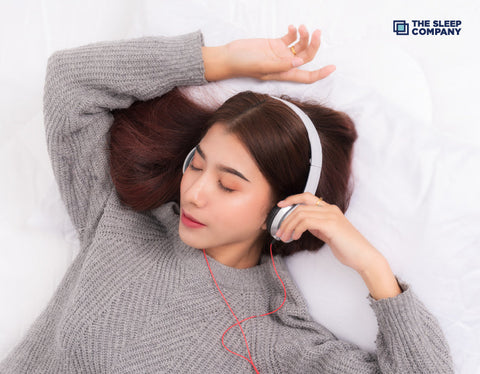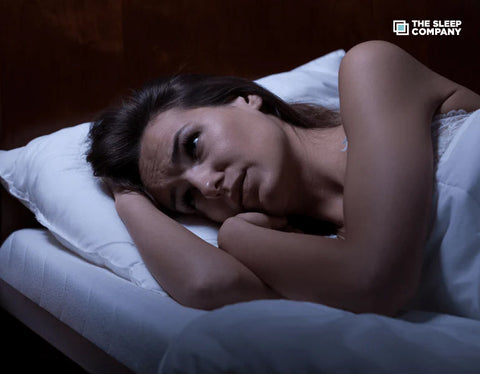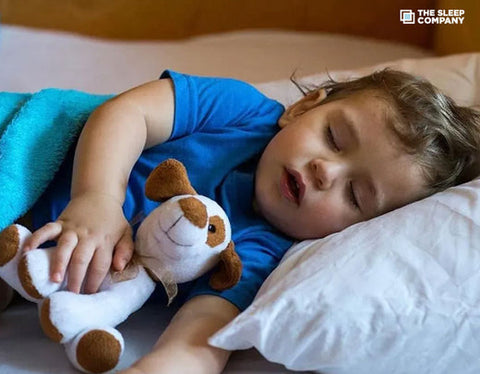My Cart
Can Sleep Trackers Accurately Measure Stress?
In this mechanical era, stress has become a part and parcel of our lives. But too much of it can adversely affect your health and can hamper your day-to-day routine. Therefore, identifying increasing stress levels should always be a priority.
That said, thanks to advanced technology, we have smartwatches and sleep trackers by our side. They are known to offer a range of data that can immensely benefit our overall well-being. Well, they are at least advertised in such a way.
That's why in today's article, we are here to unpack and understand if a sleep tracker can accurately measure stress. Let's dig deep!
What Do Sleep Trackers Monitor?
![]()
Today, there is a wide range of sleep trackers available in the market, each claiming to be better than the other. Most sleep trackers are also a part of your smartwatch, which is easily worn on the wrist day in and day out.
That said, you also have sleep trackers that can be clipped to the pillow or kept beside one. But let's understand the top features that a robust sleep tracker brings you.
Sleep Duration: A sleep tracker can give you an approximate sleep duration. Here, it tracks the time you remain inactive to derive the data.
Sleep Stages: The different phases of sleep, including light sleep, deep sleep, and REM (dream) sleep. Sleep trackers can tell you how much time you spend in each phase. This helps you identify your sleep patterns better.
Heart Rate: The sleep tracker monitors your heart rate and oxygen levels. This can also help you see when you are stressed.
Movement: A sleep tracker analyzes and tells you how much you move around in your sleep.
Sleep Quality: Your sleep tracker can tell you about the overall quality of your sleep. This is usually based on how long you were in deep sleep or REM sleep.
Can Sleep Trackers Accurately Measure Stress?
In a study, it was seen that a wearable device like your smartwatch or a sleep tracker could help identify stress based on the biometric information it derives.
The same study was also able to tell us that by sleeping an hour extra, stress levels went down by 38% in participants with high-stress levels.
But can they accurately measure stress?
Well, they can give you a rough idea of your stress levels by monitoring factors like heart rate and sleep quality.
Let's say, if your heart rate is higher than usual or if you are restless during sleep, this can be an indication of stress. Now, instead of letting it get to you, the best course of action here is for you to manage them. You can always speak with your healthcare provider about how you can effectively combat stress and also come up with a few coping mechanisms of your own.
However, these devices aren't perfect and can’t fully capture all the aspects of stress.
They might miss other signs of stress that aren't related to sleep or heart rate. When it comes to stress, apart from these parameters, go with your gut. If
something doesn't feel good, don't hesitate to ask for help.
![]()
Things You Can Do To Manage Your Stress
Here are a few things you can do to manage your stress levels.
- Get enough sleep. A good night's rest helps your body and mind recover from stress. If you aren't able to enjoy proper sleep, invest in a comfortable mattress, pillows, and bedding to help you out.
- Indulge in regular exercise. Physical activity can be a great stress buster and can immediately improve your mood.
- Practice deep breathing exercises to combat stress. The best part is that they can be practiced anywhere and anytime, and help you relax.
- Eat a healthy well-balanced meal and give your body the nutrition it deserves. This keeps your energy levels stable and improves your mood.
- If you are someone who goes through frequent stress, try talking to a professional.
- Always stay connected to your friends and family via texts and calls even if you live far away.
The Final Note
Sleep trackers can be a great tool for measuring both sleep and stress. They can offer valuable insights into your overall health, which is truly beneficial. But, you must also keep in mind that their accuracy varies. They should only be used as part of a comprehensive approach to stress management.
Remember, stress is a natural part of life, but when it becomes overwhelming, it can negatively impact your well-being.
While sleep trackers can help monitor stress, it's important to recognize when it's time to seek help. Don’t wait for your stress levels to reach a certain parameter to take proactive steps.
One of the most crucial ways to manage stress is to make sure you enjoy a good night's rest. Try to get 7-8 hours of uninterrupted sleep each night.
Investing in a cozy mattress and supportive pillows can make all the difference in helping you achieve a peaceful shuteye.
So, consider improving your sleep environment as part of your stress management strategy.
Ensure a peaceful night's sleep and keep stress at bay with The Sleep Company's range of mattresses.
FAQs
When you use a fitness tracker, you know how they keep track of your heartbeat. So, to measure stress, they assess the time variation between heartbeats. A low heart rate variation indicates higher stress levels. Some devices also monitor breathing patterns and skin conductivity to gauge stress better.
Sleep trackers are helpful for getting a general idea of your sleep patterns, like how long you sleep and when you wake up. However, they aren't always precise when it comes to details, such as how much deep sleep you get. Their accuracy depends on the quality of the device and how it works for each person.
For some people, sleep trackers can cause anxiety. Constantly checking sleep data or worrying about getting "perfect" sleep can create stress, especially if the tracker shows poor sleep results. This also makes it hard to relax!






























































